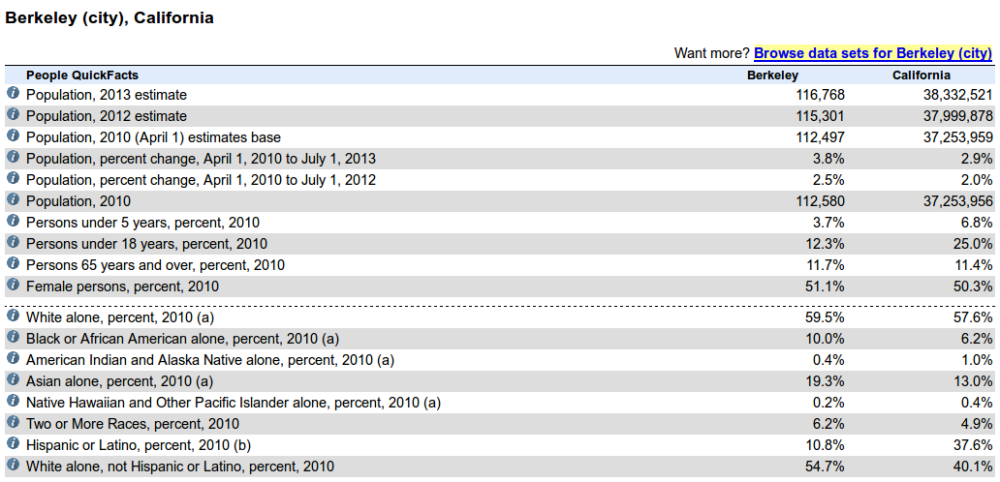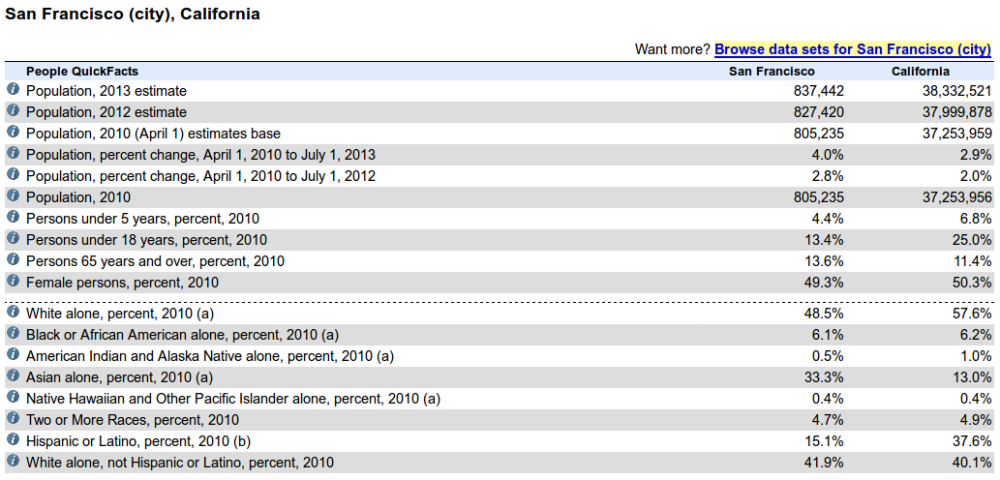The key differences between Berkeley and San Francisco are the sheer magnitude of people, linguistic diversity, and cost of living. These three factors are likely responsible for the outcomes in yesterday’s election. Particularly the use of “negativity bias,” or the aversion to negative experiences outweighing the expectation of positive outcomes. According to the U.S. Census Bureau, as shown below, Berkeley has a much smaller population, less linguistic diversity, and lower costs of living. The main advantage that Big Soda corporations had over the small local efforts was money. Money could be used to hire more translators, put up more signs and billboards, hire petitioners, run ads, and capitalize on people’s fear of change (particularly with the use of negativity bias and emphasis on taxation, loss of money, loss of freedom, and seeding mistrust in local government’s ability to manage the additional revenue).




It’s difficult to predict if SF would have passed Proposition E had it not been earmarked specifically for existing health programs or been allocated to the general fund as it was in Berkeley. The difference between an earmarked bill and one that isn’t is that one requires 50% +1 (simple majority) voters and the other requires 75% (supermajority) of voters to pass.
Although the Big Soda campaign in Berkeley revolved around criticizing the fact that money would go into a general fund (that will be implemented in new health initiatives), it was the advantage this city had over San Francisco in passing a similar tax.
However, it is possible that 4.5%+ of voters who voted “yes” in SF may have chosen “no” if they did not trust their local government to adequately allocate the money in the general fund, resulting in a non-majority vote again.
This is an important lesson in proposing changes or addenda to legislation: to earmark or not to earmark?
Here’s a nifty infographic on starting your own proposition!
Image: “Soda Can” protected by a Creative Commons license belonging to Brad Clinesmith]
